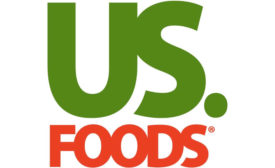Supply Chain & Logistics
Flexibility and data analytics are crucial when helping food distributors’ transportation fleets adapt to the current environment.
Read More
Frozen Food Sales Rose Significantly at the End of April, Due to Perceived Meat Shortages and Consumer Replenishing
Overall frozen food sales were +50.3% compared to 2019, the highest since mid-March stockpiling.
May 11, 2020
Tyson and Sysco Quarterly Reports Show the Impact of COVID-19 Foodservice Shutdowns
Diversifying production, inventory and distribution toward other cold foods channels will be crucial in a post-COVID-19 world.
May 4, 2020
US Foods Partners With Retailers Nationwide to Provide Distribution Support During COVID-19 Pandemic
Foodservice distributor assigns more than 700 associates to help maintain the nation's food supply.
April 3, 2020
The Impact of COVID-19 on the Fresh Produce Industry
An update on the labor, production and logistics associated with fresh produce from Vanguard International
April 2, 2020
An Update from Colborne Foodbotics Regarding COVID-19
Company designated as an essential business during coronavirus pandemic.
March 26, 2020
Elevate your expertise in refrigerated and frozen foods with unparalleled insights and connections.
Get the latest industry updates tailored your way.
JOIN TODAY!Copyright ©2024. All Rights Reserved BNP Media.
Design, CMS, Hosting & Web Development :: ePublishing











